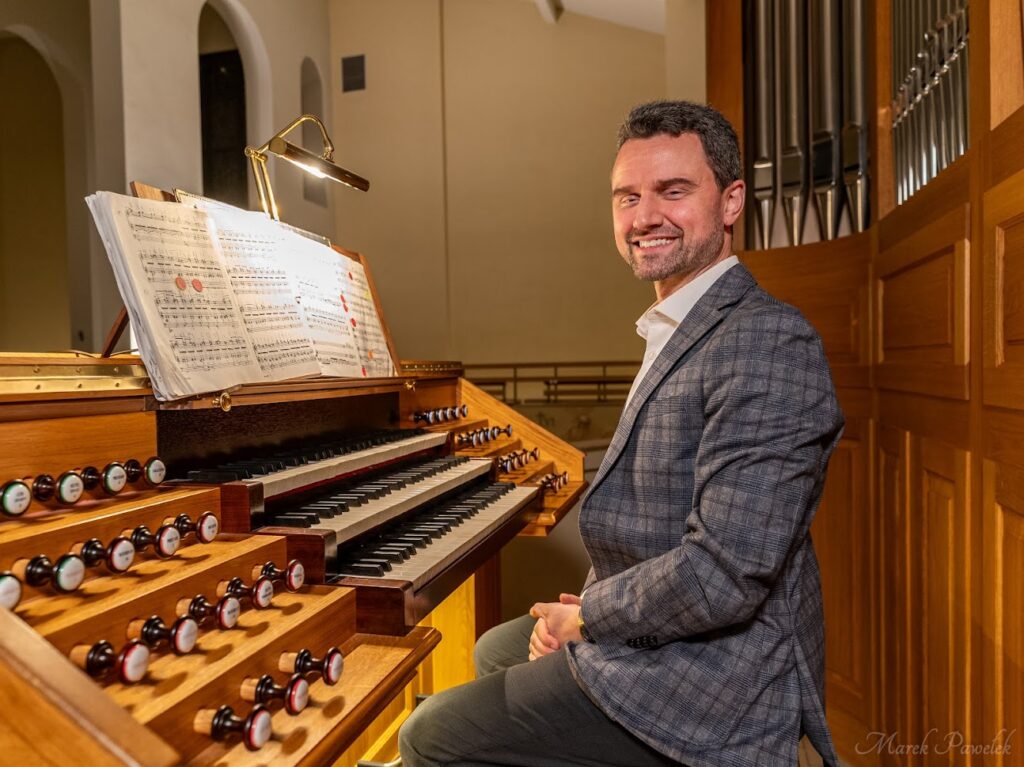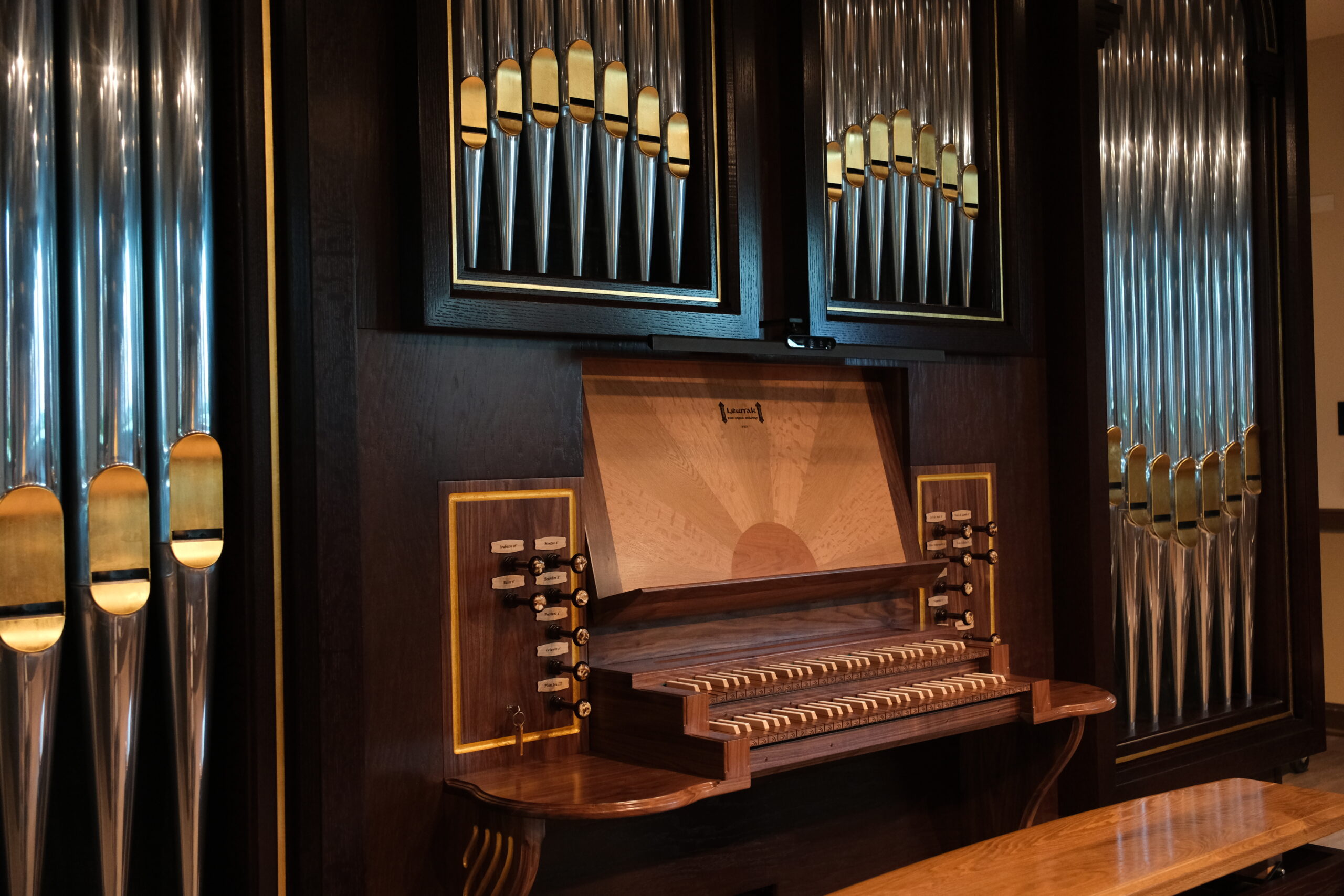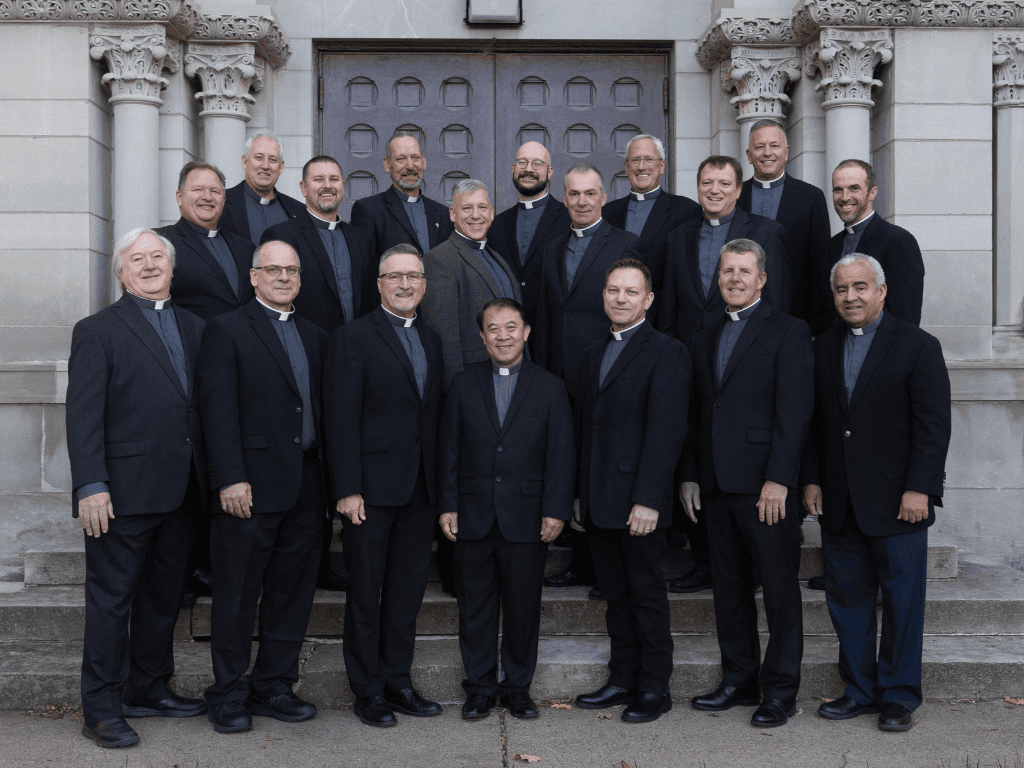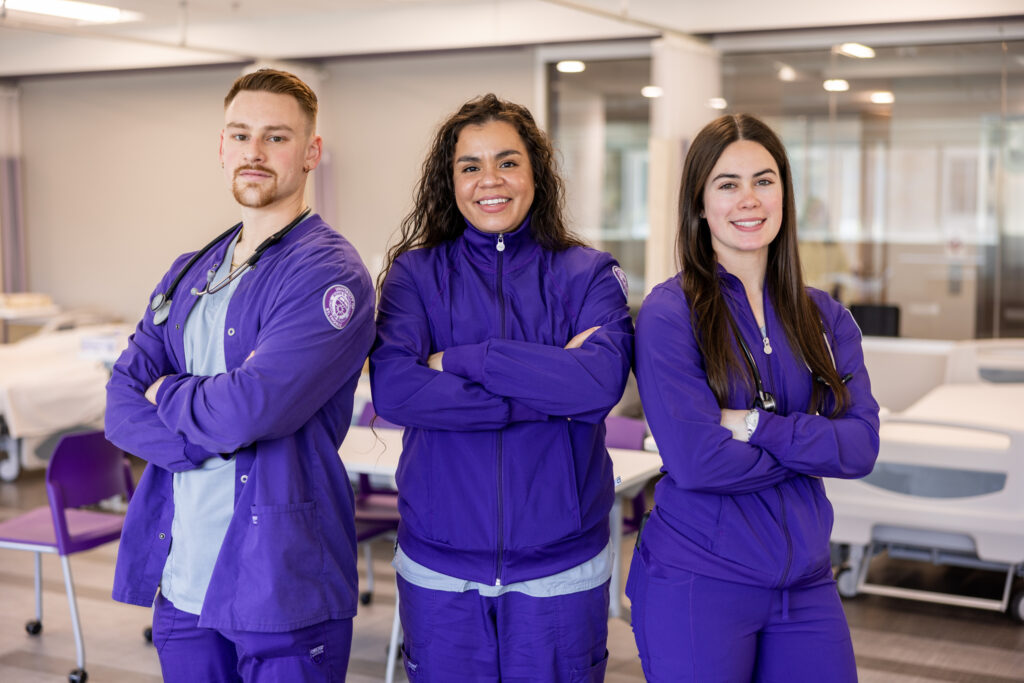“In the Latin Church the pipe organ is to be held in high esteem, for it is the traditional musical instrument which adds a wonderful splendor to the Church’s ceremonies and powerfully lifts up man’s mind to God and to higher things.” (#120, Chapter VI Sacred Music, Constitution on the Sacred Liturgy Sacrosanctum Concilium Solemnly Promulgated by His Holiness Pope Paul VI on Dec. 4, 1963).
The new chapel of Saint John Vianney College Seminary (SJV) at the University of St. Thomas is scaling new heights in beauty since its recent pipe organ installation. Lewtak Pipe Organ Builders, Inc. completed the project Nov. 22, marking the official completion of the chapel which was dedicated by Archbishop Hebda on April 20.
Dr. Jacob Benda, director of music, liturgy and sacred arts at the University of St. Thomas, was instrumental in connecting SJV with Tom Lewtak and his team. Benda visited Lewtak’s state-of-the-art manufacturing facility in Mocksville, North Carolina, after playing several of his instruments on the East Coast in 2020. “By the end of the visit, I came to admire not only the sound of Tom's instruments but also the care and craftsmanship invested into each pipe organ he built,” Benda said. “Each Lewtak organ has its own distinct sound and personality. His fresh and innovative approach to organ design sets him apart in his field.”

Two years of planning
After Benda recommended him for the project at SJV, one of Lewtak’s smallest organ builds commenced. “There is no cookie cutter because every one of our instruments goes to a unique space with unique acoustics and a unique congregation,” Lewtak said. “The planning part is just tremendous. It’s 980 pipes exactly, from the size of a pencil to eight-feet long, in a small space with many mechanical elements. The reality doesn’t match how beautiful it looks on the computer, so you tweak it as you build it. This is what wakes me up in the morning. I’m one of those people who doesn’t like boring stuff,” he laughed. “I’m definitely in the right business.”
Lewtak also described the nuances of accomplishing his mission around the renovation project at SJV. “The building didn’t exist when we started two years ago,” he said. “It was a bunch of plans on the ground which told about the dimensions, height, and width, but nothing about acoustics.” Lewtak came for two site visits, one just weeks before installation. “I have to be in the building, otherwise I don’t know how to voice this organ,” he explained. Despite his team’s progress on the seminary organ, Lewtak decided to alter design details on the facade to fit his observations from the site visit. “The voicing is really the heart of everything. This is what makes it or breaks it,” he said. “I’m the professional, and the credit of trust has to be issued to me.”
Built to last
An organ performance student with a minor in organ building from the Music Academy of Poland, Lewtak studied his craft throughout Europe before immigrating to New York with his wife and son in 2000. He maintains connections with fellow vendors throughout the world when building his organs today, including pipe makers in the Czech Republic and Holland. A lack of skilled labor and post-pandemic manufacturing delays have added challenges to his industry, but Lewtak sees divine orchestration behind the installation timeline at SJV. “We were supposed to be here in May, but then the seminarians wouldn’t have been able to witness all of this,” Lewtak explained. “It’s a once-in-a-lifetime thing since the projected lifespan of this organ is 100 to 150 years. What a fantastic learning experience for these future priests.”
Students at SJV echoed their gratitude for this opportunity. “I learned so much about the intricacies of the mechanics that go into making beautiful music which has made me appreciate it more,” said Gregory Maloney ’27 SJV.

“When people ask me about SJV’s new organ, I often have to check myself because I am bursting with so many stories about the intricacies and function,” Andrew Lehnen ’26 SJV shared. “Our organ is not only an amazing instrument and network of engineering and design but also a beautiful work of art that will be passed down for generations at the seminary.”
“It’s a true engineering marvel,” said Aiden Nicholas ’27 SJV. “It was super cool to be able to help assemble or fix certain parts. Whenever I hear the organ being played, I think ‘I helped build this!’ It was an awesome experience I will never forget.”
Unseen but heard
Veiled by a railing featuring nine choirs of angels, less than a third of the organ case can be visible from the main level of the chapel. Lewtak thinks the visual elegance of the instrument would surprise people the most. “Even though the fine stuff, gold trim, Baltic amber on draw knobs has nothing to do with sound, people hear with their eyes.”
Benda acknowledged how well SJV’s organ complements the aesthetic principles of the chapel where it resides. “Visually speaking, Lewtak's organ is a gem,” he said. “The crowning achievement of this instrument is that while each stop (14 in total) has its own personality, the various voices of the instrument blend so extremely well together – this is not easy to do!”
He expressed gratitude for the opportunity to be a project consultant helping bring a new pipe organ into existence, an uncommon experience for most organists. “I consider myself blessed to have had the opportunity to work with Father Kelly, Tom Lewtak, Michael Raia, the liturgical design team, and SJV staff in bringing this landmark instrument to the Saint John Vianney Seminary,” he said. “Several of my organ students at St. Thomas are SJV seminarians, and I look forward to experiencing the beauty of this pipe organ alongside them for years to come.”
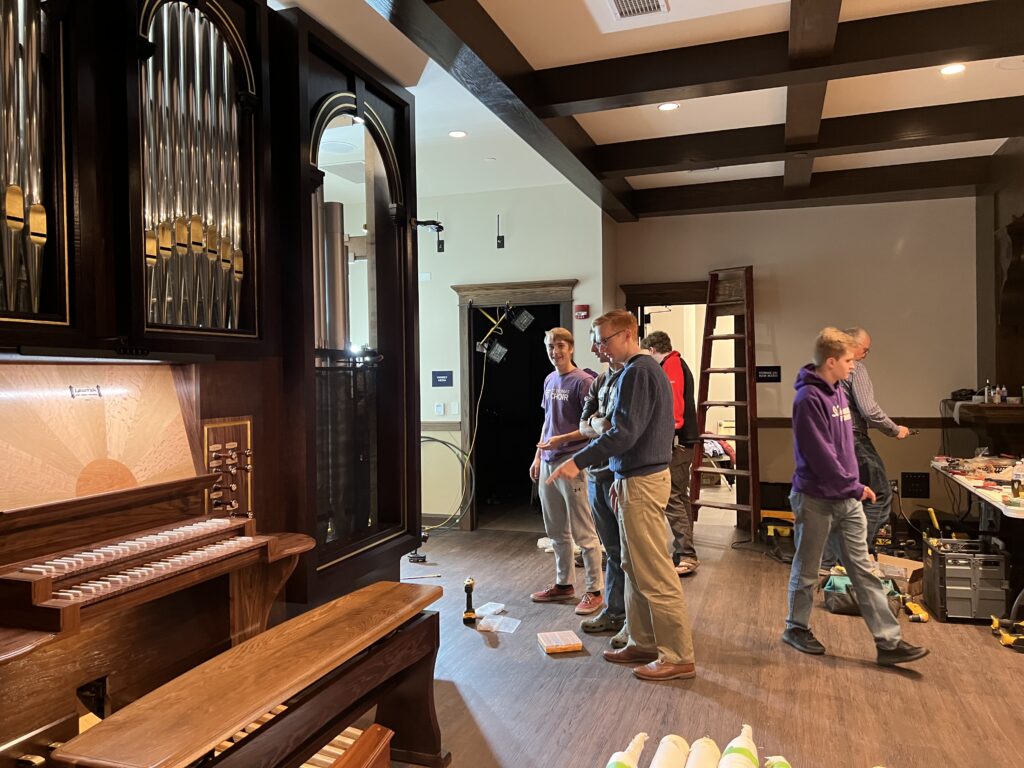
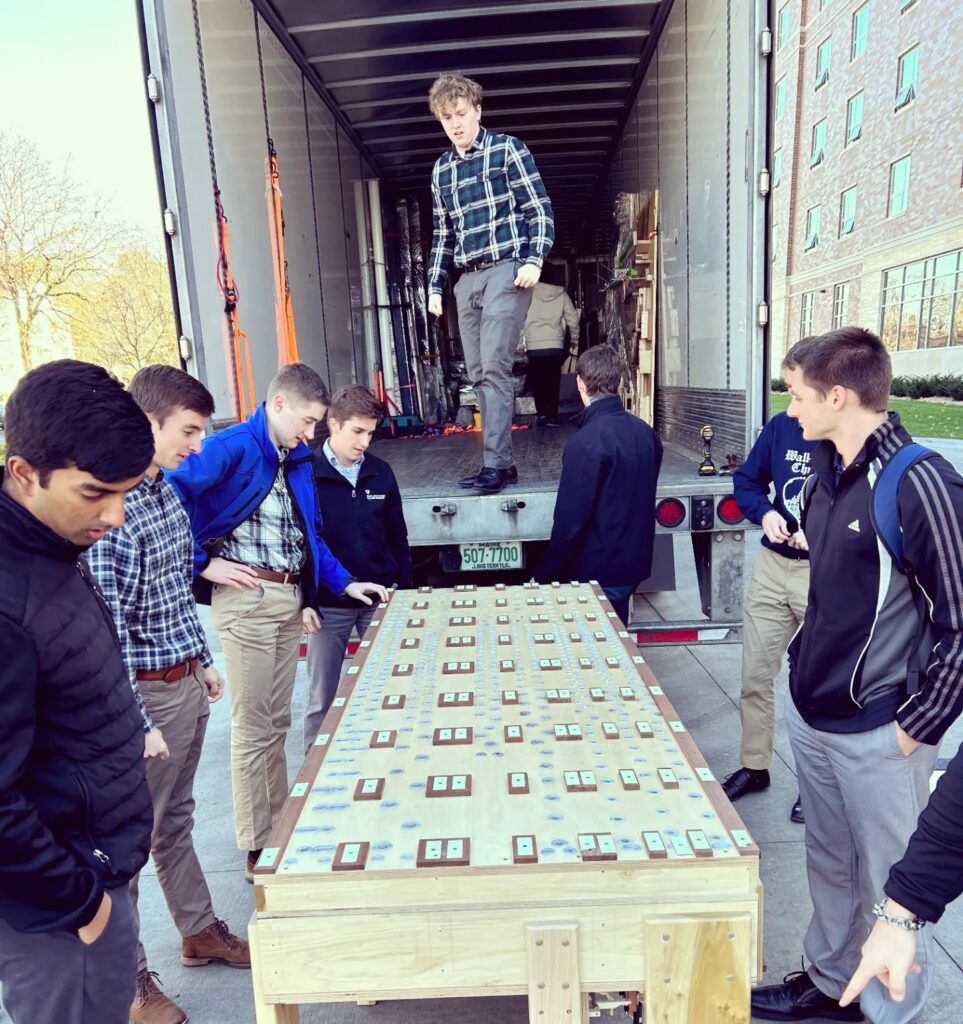
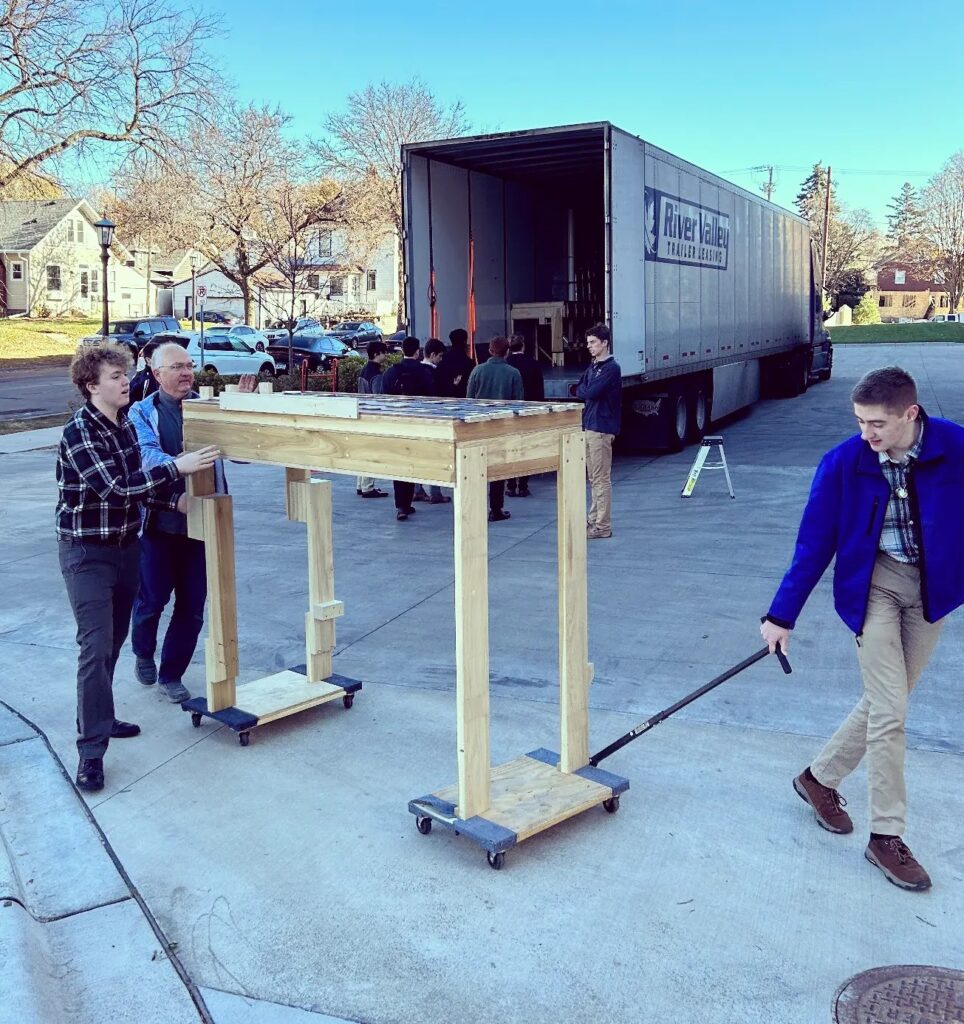
Related Content
